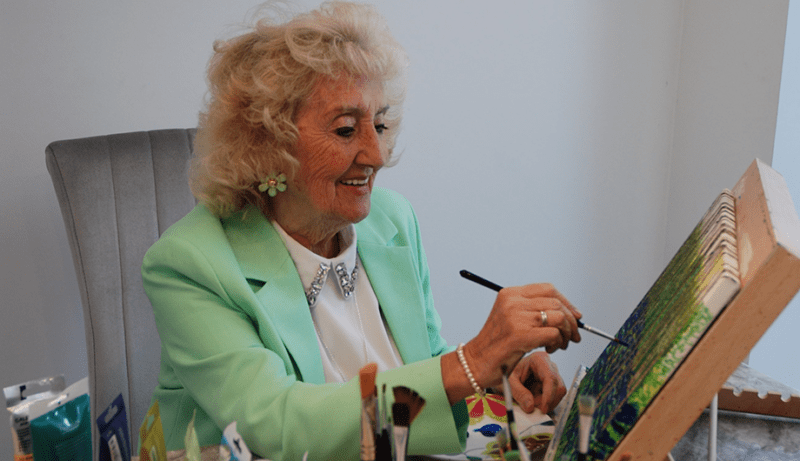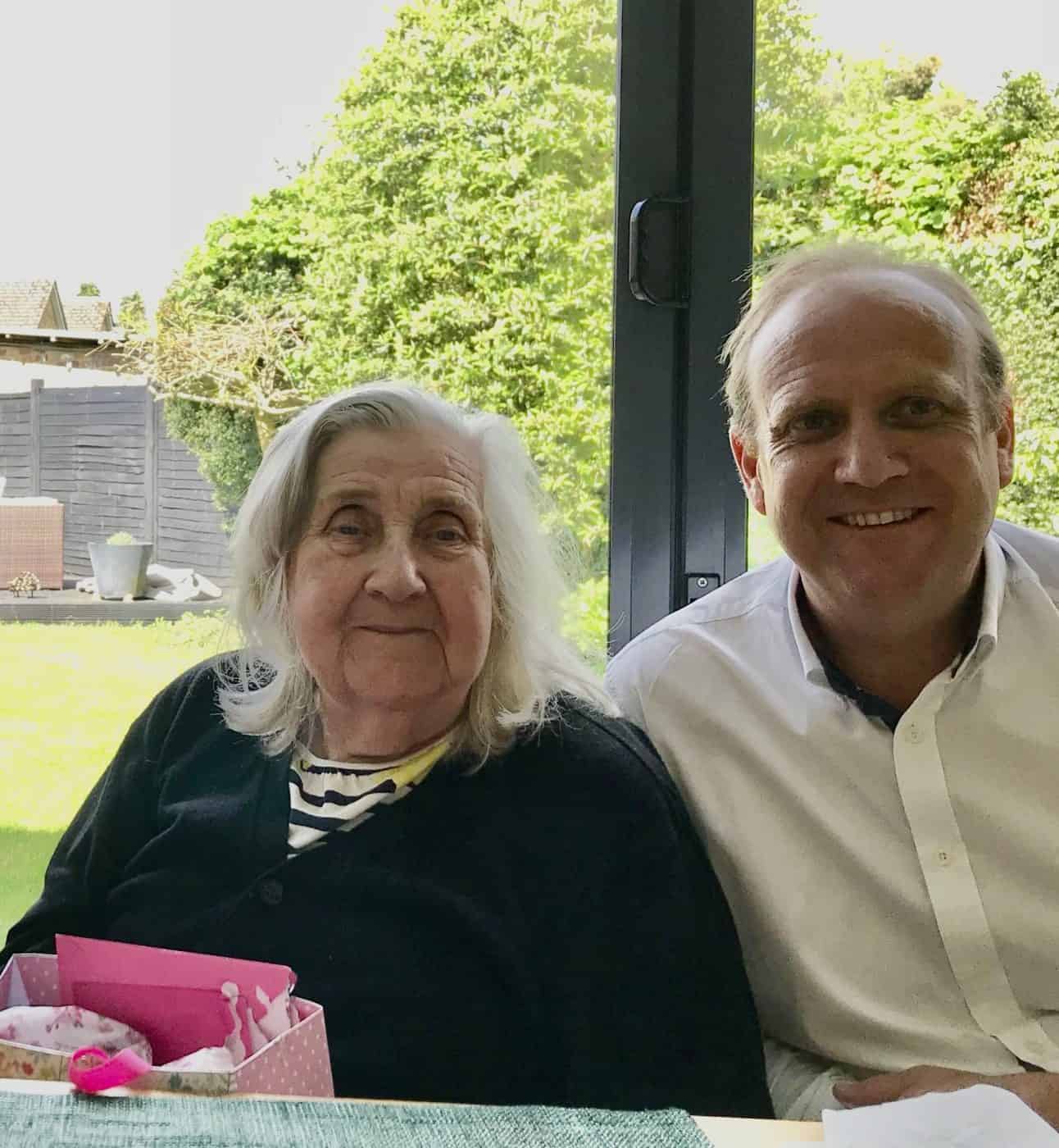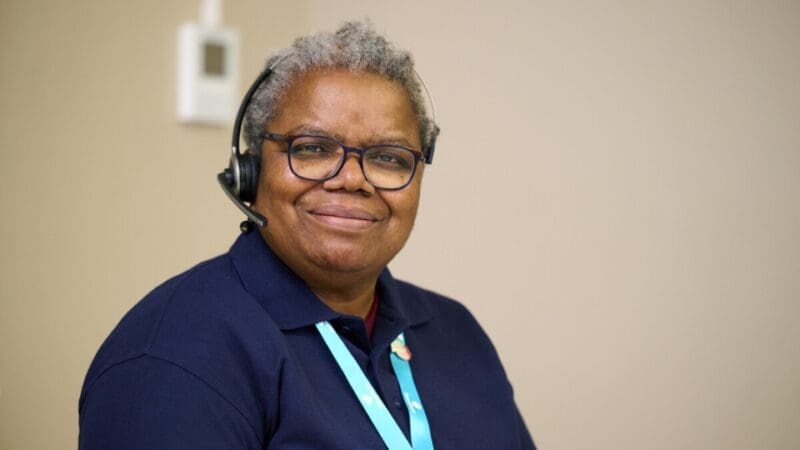
“The lack of recognition of unpaid carers is frustrating”
Will shares how his mum's diagnosis impacted the family and highlights the importance of advocating for young carers.
If you, or someone you know, is showing possible symptoms of dementia, including Alzheimer’s disease, it is important to visit a doctor for tests. Our dementia specialist Admiral Nurses explain the different kinds of tests that are used to assess someone for dementia, including genetic tests, how they are undertaken, and why.
There are a number of reasons someone may experience dementia symptoms such as memory loss, problems with concentration and difficulties with communication. Often, these symptoms can be caused by other physical or mental health issues, many of which can be treated or managed, so it is important to see a GP to rule these out.
To establish whether someone has dementia or another condition with similar symptoms, healthcare professionals use a variety of tests and assessments.
If you or someone you know is waiting for an appointment or assessment, there are steps you can take in the meantime. Learn what to do while waiting for a dementia diagnosis to feel more prepared and supported during the process.
Testing is crucial to establish whether someone has dementia or another condition with similar symptoms. It enables healthcare professionals to start any possible treatment as soon as possible. It also provides the person with an explanation of what is happening to them, helps them and their family members learn how to manage the symptoms and maintain quality of life, and can unlock support and financial benefits.
It is natural to feel overwhelmed by the possibility of a dementia diagnosis and put off seeing the GP, but it is important to seek advice if you are noticing symptoms. For some people, medication can slow down the progression of dementia and make the symptoms more manageable, but this is most effective if started in the early stages, so getting a prompt diagnosis is key. Getting an early diagnosis also means you can access information and support to help with managing the condition and maintaining quality of life.
People who are experiencing symptoms of dementia will be asked to take part in tests to assess memory and thinking. These are referred to as cognitive assessments.
Usually, a GP will carry out the initial cognitive assessments to determine if further testing is needed.
There are a number of different cognitive tests for dementia; however, a common one that is used by GPs as an initial assessment is the General Practitioner Assessment of Cognition, also known as the GPCOG.
The majority of tests are undertaken using a pen and paper and there are questions to answer, each element carries a score.
The tests will give insight into a range of mental abilities including:
While cognitive tests alone cannot diagnose dementia on their own, they are an important part of the process and are used to identify changes and determine a further course of action.
A blood test can check to see if there are any other underlying causes for symptoms, other than dementia.
Through a blood sample, your GP can check some of the following including:
Currently, there is not a blood test available in the UK to test for dementia alone.
As a next step, doctors may request brain imaging to test for dementia after other potential causes have been ruled out.
While brain scans on their own cannot give a definitive diagnosis but are used as a part of a range of assessments. It’s important to note that not everyone will need a brain scan.
There are a number of different scans that may be used, these will be looking for any other conditions that could also explain symptoms.
During a CT scan, you will lie still on a flat bed while the radiographer controls the scanner from a separate room. You will still be able to hear the radiographer, and from time to time, they may ask you to breathe deeply or hold your breath at times. It will take around 10-20 minutes.
An MRI may be requested for several reasons, particularly as it gives detailed information on the brain’s structure. The scan can confirm a diagnosis of dementia and the type of disease that is causing the dementia.
During an MRI scan, you will lie flat on a bed, keeping still, while a radiologist controls the scanner from a separate room. The scan takes around 15-90 minutes. It is worth noting that because MRI scans use magnets any metal that can be removed needs to be prior to the scan, and those with metal in their body or pacemakers cannot have an MRI.
If the results of an MRI or CT scan are uncertain, a SPECT or PET scan may be recommended, however, this is not common. In both of these types of imaging, the way the brain functions is monitored to understand any changes in the way the blood flows in the brain.
During a SPECT or PET Scan you will be injected with, or asked to swallow, a radiotracer, and once this is absorbed, you will lie on a table while a radiographer controls the scanner from another room. The scan normally takes around 30 minutes.
You should visit your GP if problems with your memory have started to have an impact on your life. Whether it’s everyday living, becoming muddled when you weren’t before, regularly forgetting where you are supposed to be or having issues undertaking your job, book an appointment.
Additionally if symptoms are being seen in someone else you know, you could encourage them to visit their GP.
In the vast majority of cases, dementia is not inherited. There are some forms that have a genetic component such as Familial Alzheimer’s disease (FAD), Familial Frontotemporal dementia (FTD) and a rare form of hereditary vascular dementia.
It’s natural for people to be reluctant to see a GP or to be afraid of getting a dementia diagnosis. They might be worried that they’ll lose their independence, have to give up driving, or have to go into care. In some cases, they may not understand why you’re concerned about them, or deny that there are any problems.
Try to explain to the person that their symptoms may be due to another condition that could be treated, as this may make them more willing to see their GP. You could also explain that if they do have dementia, a prompt diagnosis often means they can get the right support sooner.
Sometimes, there may be a delay in being able to arrange a face-to-face appointment with a GP, especially as many practices have kept phone or video appointments.
In both of these circumstances, it may be helpful to notify the GP in writing (either by letter or email) of any concerns you have or symptoms you have noticed, including details such as specific examples and frequency. The GP can then decide if any action needs to be taken or a face-to-face appointment needs to be prioritised.
Having the right support can make the diagnosis process easier. You can find more information about testing, diagnosis, appointments, and caring for someone with dementia in this guide.

Will shares how his mum's diagnosis impacted the family and highlights the importance of advocating for young carers.

Since being diagnosed with Alzheimer’s disease in 2019, Sylvia has found a new purpose in expressing her feelings through painting.

When Steve’s mum, who had dementia, was hospitalised after a fall, Steve turned to Dementia UK’s Helpline for support.
To speak to a specialist dementia Admiral Nurse about tests for dementia or any aspect of dementia, please call our free Dementia Helpline on 0800 888 6678 (Monday-Friday 9am-9pm, Saturday and Sunday 9am-5pm, every day except 25th December or email helpline@dementiauk.org.
If you prefer, you can book a phone or video appointment with a specialist dementia Admiral Nurse in our virtual clinics.
If you have any worries about your memory or someone in your life is experiencing memory issues, it is important to talk to a doctor sooner rather than later to get the best support and treatment if you do have dementia.
It can be too early for a diagnosis and, as a result, adversely impact a person’s life and decisions.
If diagnostic tests are not reviewed in line with other assessments, then there can be errors in diagnosis. If you are unhappy you can request a second opinion.
If you are concerned about your own memory it is important to consult a GP as soon as possible. This will make sure that you are given appropriate advice.
This checklist has been written by dementia specialist Admiral Nurses, to help in the early days after you or your family member has received a diagnosis of dementia.

Whether you have a question that needs an immediate answer or need emotional support when life feels overwhelming, these are the ways our dementia specialist Admiral Nurses can support you.